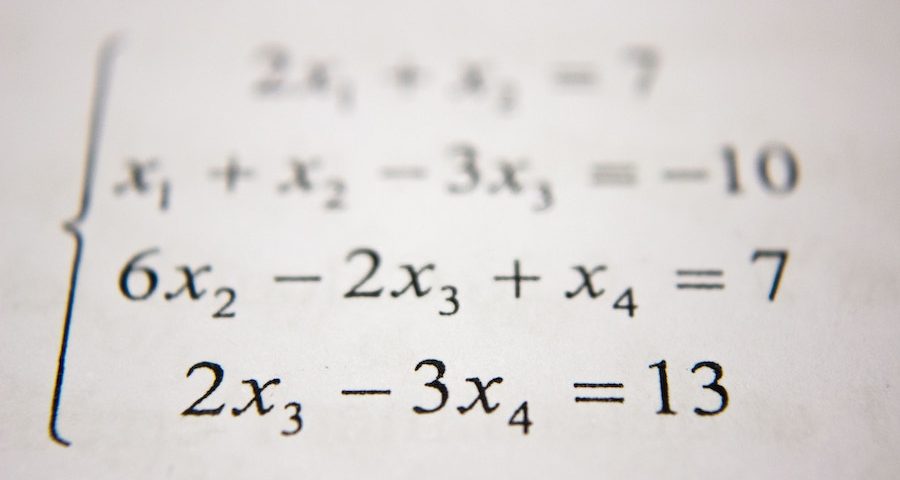The High School Math Courses Students Should Sign Up For

Tips to Improve Your SAT Score While You’re Relaxing on Vacation
July 15, 2019
College Interview Tips and Strategies
August 5, 2019The High School Math Courses Students Should Sign Up For
Math may seem like a daunting subject for any high school student, regardless of age or skill set. Thus, it’s natural for students to feel intimidated about homework, exams, and even in-class practice questions. Most high schools require students to complete at least three years of math to graduate, while some colleges prefer applicants to pass four years. There are several math courses students can take throughout high school to meet graduation requirements and maintain high grades. So, should you register for Trigonometry, Statistics, or AP Calculus? Check out these helpful tips for choosing a high school math class.
Review The School District’s Math Curriculum
Most high schools have a set path of math courses for students. This path usually consists of Algebra 1, Geometry, Algebra 2 or Trigonometry, Pre-Calculus, and then Calculus. Since students only need to study three years of math, freshmen, sophomores, and juniors need to choose wisely. Keep in mind, however, that this path does not apply to every school. In fact, some school districts have their own unique math curriculum. For instance, some schools group Algebra 1 and 2 together, as well as other variations. If you feel unsure about your school’s offerings, then check in with the head of the math department to review all your options.
Think About College Math Expectations
Depending on your college major, your math workload will either increase or lighten. If you plan on pursuing a degree in STEM (science, technology, engineering, or math), colleges expect you to demonstrate a high math proficiency. We recommend completing Advanced Placement (AP) or honors courses to prepare you for college-level material. This sends schools a clear message that can handle a heavy math-centric workload.
If you plan on studying something in the humanities field (English, social sciences, etc.) math does not need to be your priority. But that doesn’t mean you should avoid taking an Advanced Placement class if you enjoy math. Completing these classes, as well as the AP exam, can earn you some college credits, thereby saving you money in the long run.
Keeping Your GPA Intact
Students need to keep their GPA in mind for all academic decisions. High school students planning to pursue a degree in the humanities field can skip AP Calculus. The standard math classes will suffice instead, and allow students to maintain a high GPA. Students pursuing STEM will need to take advanced level courses if they feel they’re up to the challenge. Colleges want to see the extra effort. At the same time, however, colleges don’t want to see your GPA take a nosedive. If students feel the workload in these advanced classes are simply too much, then transferring to a standard math class may be the best alternative.
Alternative Math Courses
Despite studying day after day, some students simply don’t excel in math. So what are these students supposed to do rather than struggle through Calculus?
Luckily, there are some alternative courses that students can take that fulfill the general math requirements. Business electives, such as Personal Finance and Accounting, continue to become more popular alternatives to the regular math curriculum. Check to see the courses your school district offers for a more beneficial experience.
Choosing The Best Math Course For You
Math is one of the most difficult courses to understand, so students shouldn’t force themselves into courses that will prove too problematic. Of course, advanced level classes can help you in the future, but only take them if you feel comfortable with the material and the speed of the course. Your GPA and your sanity are at stake; so don’t want to ruin either by trying to juggle too much. Everyone has strengths; students just need to play to their own strengths to impress colleges.
For more helpful studying tips, make sure to subscribe to our blog for the latest test prep solutions.


